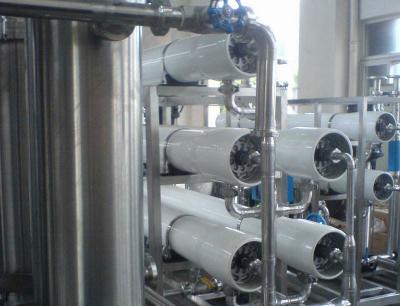Production technology and process of heparin sodium
Dissolution: scrape off the surface mucosa of the small intestine of fresh pig, mix with water in the proportion of one to four, adjust the PH to about 8.0 with about 30% sodium hydroxide, heat in a 50 ℃ water bath, and remove the insoluble impurities after putting for 2 hours.
Enzymolysis: heparin exists in animal body in the form of heparin protein complex. The protein component of the complex is removed by enzymolysis or salt hydrolysis to free heparin. A small amount of trypsin is added into the heparin sodium solution to degrade a small amount of protein remaining in heparin into small molecular peptide, which is dissociated from the heparin protein complex, and the redundant protein is removed by adjusting the PH value.
Centrifugation: after centrifugation, most particle impurities and grease are removed.
Resin adsorption and recovery: adjust the PH value to 8.0 when the temperature is 55 ℃, add the processed special resin of D204 heparin sodium, stir and absorb for 8 hours, then filter and collect the resin. Wash the adsorbed resin with tap water repeatedly until the water becomes clear.
Alcohol precipitation and drying: adjust the oxidation solution to PH6.5, and add 95% ethanol to precipitate. Extract the supernatant to obtain the precipitate, slowly add the precipitate to anhydrous alcohol or acetone for dehydration, control the temperature to 55 ℃, and vacuum dry for more than 3 hours to obtain the excellent product.
Summary
In view of the problems of separation, purification and concentration of heparin / heparin sodium products, such as purification and concentration of heparin hydrolysate, desalination and concentration of casing high salt water, treatment of high salt and high COD wastewater, etc.
Purification and recovery: the ceramic membrane can completely intercept proteins and other macromolecular substances in the supernatant. The traditional separation methods include centrifugation, plate and frame filtration, cloth bag filtration, etc. Due to the filtration accuracy and other reasons, there are some problems such as the absorption efficiency is reduced and the service life is shortened caused by the entering of macromolecular impurities in the later resin process.
Desalting and concentration:
organic membrane can effectively remove sodium chloride and other salts in heparin sodium, and concentrate heparin sodium, instead of the traditional "water dilution" and other processes, greatly reducing the use of resin and the cost of supporting tanks and reducing the sewage discharge.
Waste water treatment: membrane integration technology realizes waste water recycling, energy conservation and emission reduction.




 +86-25-58849045
+86-25-58849045
 +86-25-58749295
+86-25-58749295
 jiuwu@jiuwu.com
jiuwu@jiuwu.com
 No. 9 Park Road, Pukou District, Nanjing City (Sanqiao Factory)
No. 9 Park Road, Pukou District, Nanjing City (Sanqiao Factory) Call us on:
Call us on:  Email Us:
Email Us:  No. 9 Park Road, Pukou District, Nanjing City (Sanqiao Factory)
No. 9 Park Road, Pukou District, Nanjing City (Sanqiao Factory)

 English
English 한국어
한국어 français
français русский
русский Español
Español

